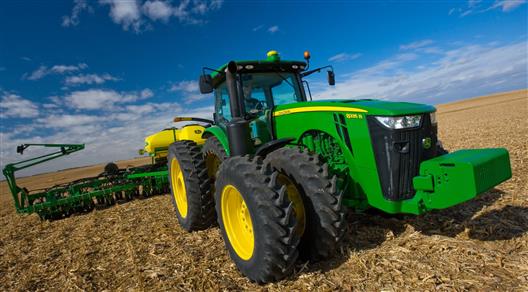Arkansas farmers hope to fare better in the coming year after brutal 2018
by February 4, 2019 8:38 am 480 views

A perfect storm of problems ranging from the ongoing trade war with China, lower commodity prices, and bad weather plagued Arkansas farmers in 2018. Arkansas Agriculture Secretary Wes Ward told Talk Business & Politics he thinks 2019 will be better for growers for one simple reason – it would be hard for it to be worse than the previous year.
“Last year was difficult for producers … it was like a perfect storm,” Ward said. “I’m really optimistic for 2019. I’m really optimistic for our producers.”
Agriculture is the top economic sector in Arkansas. It has a $21 billion impact on the state, Ward said. Gov. Asa Hutchinson plans to make the industry front-and-center in his administration with his proposal to transform state government. The governor is reducing state departments, agencies and boards that directly report to him from 42 to 15. The state’s Agriculture Department, various boards and commissions within the sector, and the Natural Resources Commission will be merged into a new Arkansas Department of Agriculture.
Officials at the department have spent the last year attending meetings with different organizations and groups explaining the benefits of this reorganization, Ward said. The goal is to bring any agency or organization that is agriculture-related underneath one umbrella at the department. The hope is to streamline processes and make government more efficient, he added. Most of the response has been positive and he hopes the Arkansas General Assembly will be able to pass the governor’s plan.
“I don’t feel like there will be a lot of push back,” he said, despite resistance two years ago to a smaller reorganization effort.
One major, ongoing issue will be the use of the herbicide dicamba. The Arkansas State Plant Board has tentatively agreed to allow limited use of the controversy-stirring herbicide. Under proposed regulations, applications taking place between April 16 and May 20 will be subject to a one-mile buffer zone around research stations, organic crops, specialty crops, non-tolerant dicamba crops and other sensitive crops and will also include a restriction on mixing glyphosate with dicamba. The proposed rules would restrict applications of dicamba from May 21 through Oct. 31.
Dicamba use was banned in 2017 after the ASPB received about 1,000 damage complaints, primarily in Northeast Arkansas, potentially caused from dicamba drift. The decision was highly controversial, but the board decided the risks were too significant.
Another issue that hit farmers hard was the ongoing trade war with China. President Donald Trump has slapped billions of dollars in tariffs on Chinese goods in an attempt to offset trade deficits that the U.S. has with the world’s most populous country. The trade war has been good for the U.S. steel industry which has a hard time competing with government subsidized, cheap Chinese steel that flows into international markets.
The downside is that China is the top soybean importer in the world, and soybeans are Arkansas’ top crop. It has been reported that China has only imported about 3% of what they would normally import by December from the U.S., according to the United States Agriculture Department.
Arkansas farmers harvested about 3.25 million soybean acres in 2018. The Chinese have taken steps to lessen their dependence on U.S. soybeans such as rationing livestock feed, buying from other markets, and providing greater incentives for Chinese farmers to grow soybeans. But, there are reports that China has been buying some U.S. soybeans in recent weeks, and that is an encouraging sign, Ward said.
Hutchinson has been in contact with the White House and the U.S. Trade Representative’s Office urging a resolution to the trade war, but negotiations are outside of the state’s control.
There are other factors that could impact farmers in the coming year. Weather has always been an issue since the first seeds were intentionally planted many years ago. In 2018, the weather caused catastrophic soybean losses. Heavy rains during the fall slowed the harvest and farmers lost up to 23 million bushels. Damage rates in some fields were up to 7%.
The total loss created by the untimely rains could push $1 billion by the time planting season arrives in the spring. Input costs will likely rise as farmers repair fields in 2019, but producers won’t know until the work is actually done, Ward said.
“Those rains could not have come at a worse time … hopefully we won’t have to deal with that in 2019,” he said.
The weather combined with the ensuing trade war pummeled commodity prices throughout the year.
Other factors such as the rise in the feral hog population and diseases will be other issues farmers will have to tackle during the next season, he said.
“I think we hit rock bottom in 2018, and now we’re on our way back up,” Ward said.
__________________
Editor’s note: This article first appeared in Talk Business & Politics State of the State 2019 magazine, which you can access here.
